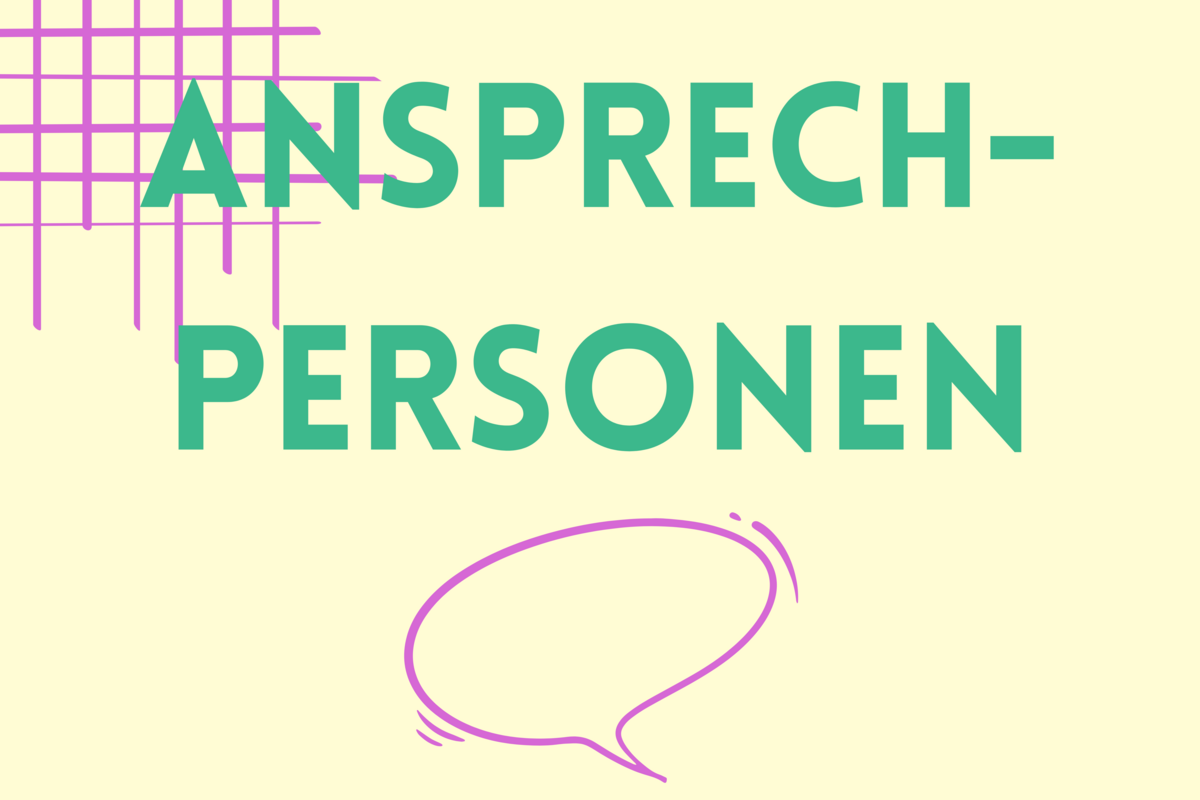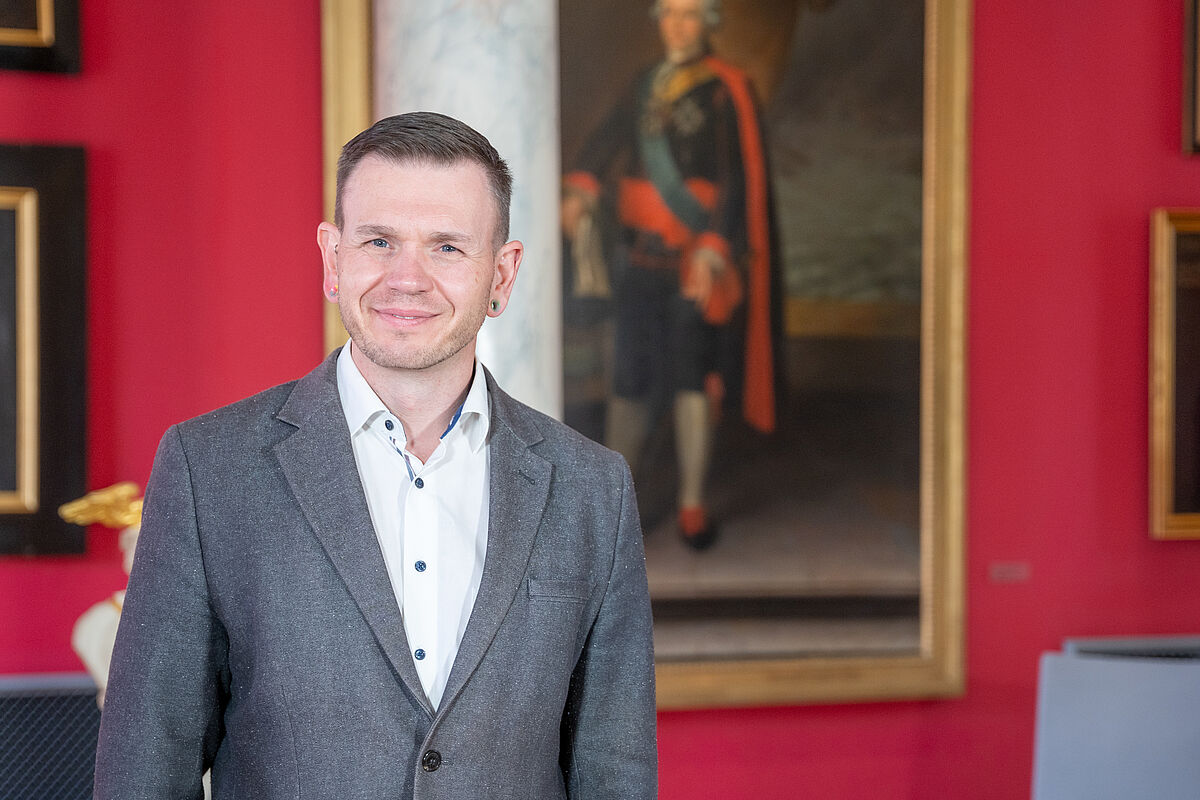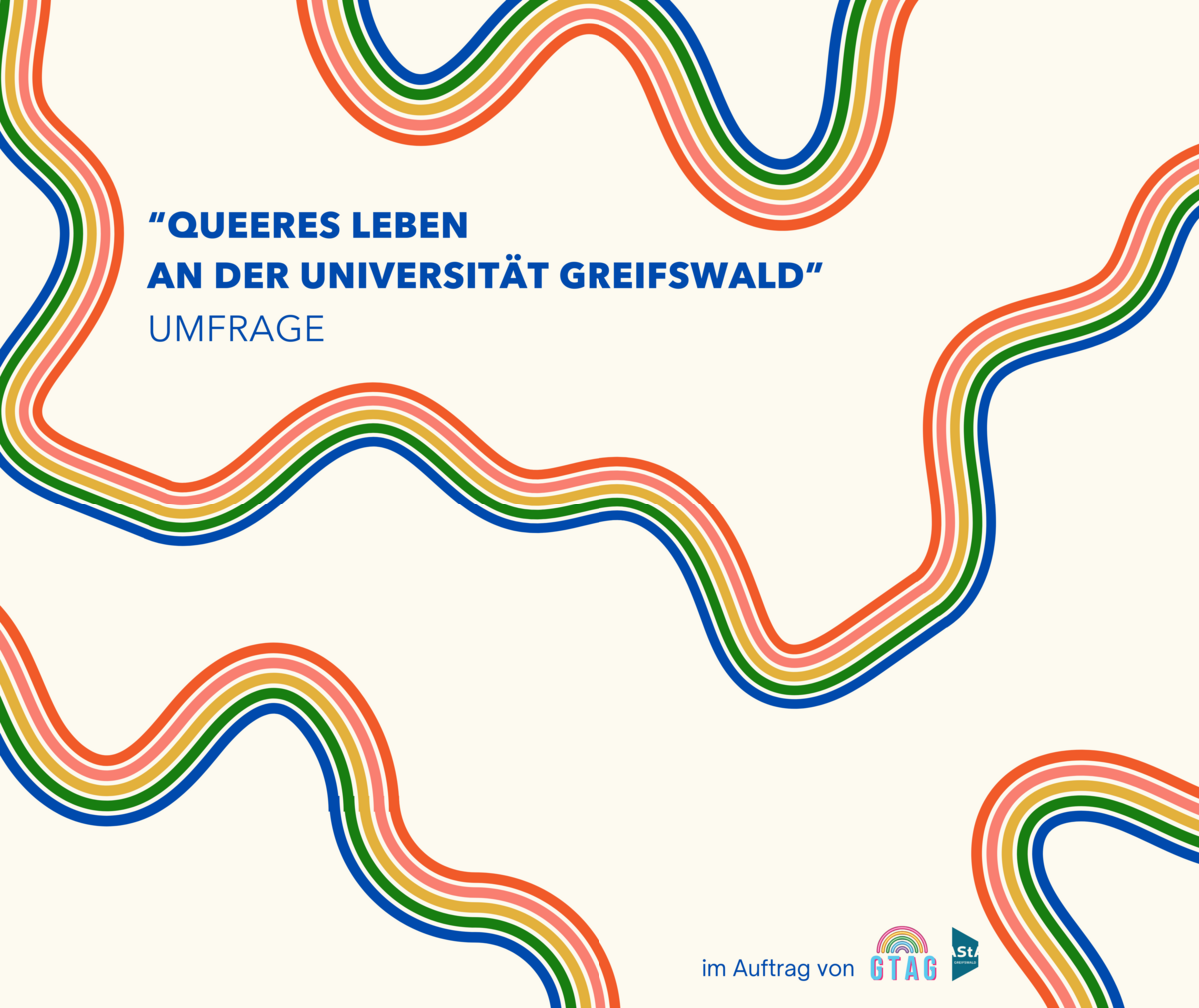On this page you will find contact persons and information material on the topics of awareness, anti-discrimination and gender equality. You will also find past and future events and offers from the AStA.
We are committed to an accepting interaction with each other and an open-minded atmosphere at the university! We also do not tolerate assaultive behaviour or discrimination of any kind! But what does that actually mean?
Awareness comes from the English Language word "to be aware". It means becoming aware ofpower relations, privileges and other problems such as physical and psychological violence, discrimination and other barriers and sensitising people to them.
In short, it is about creating a place that is as secure as possible and supporting people for whom this is not a matter of course.
The Allgemeine Gleichbehandlungsgesetz - AGG (General Act on Equal Treatment) does not speak of discrimination but of disadvantage, as not every difference in treatment that results in disadvantage must be discriminatory. Within very narrow boundaries, different treatment in relation to professional life is permissible if the required characteristic is essential and almost indispensable for the performance of the job.
Direct (direct or overt) discrimination occurs when a person is, has been or would be treated less favourably than a comparator. This is the case, for example, if a person with a migration background is not invited to a job interview despite having the same qualifications, whereas people without a migration background are.
The AGG's protection against discrimination also extends to indirect discrimination. On the face of it, these are neutral regulations that penalise people because of an AGG characteristic.
Example: A provision in a collective agreement stipulates that part-time employed persons may not take advantage of certain benefits without providing a reason related to working hours. If the majority of part-time employees in a company are women, this constitutes indirect gender-based discrimination.
Sexual discrimination, harassment and violence is any non-desired, sex-related behaviour that violates the dignity of the person concerned and creates a climate of intimidation, humiliation and insult due to sexualised acts. (§ 1 of the Directive)
Examples according to § 2 para. 2 of the Directive:
- Sexualised and derogatory language,
- Humiliating comments or jokes about people, their body, their behaviour or their intimate life,
- Non-desired gestures and behaviour with a sexual connotation,
- Verbal, pictorial or electronic presentation of pornographic or sexualised images with humiliating intent on the part of the presenter,
- Non-desired physical contact,
- Non-desired solicitation or coercion of sexual behaviour,
- Persecution or coercion with a sexual background,
- rape
Sexual discrimination, harassment and violence that exploits relationships of dependency at the workstation or in studies and teaching are classified as particularly serious . This applies in particular to threats of personal study-related or appointment-related disadvantages or the promise of advantages.
It is particularly important to be sensitive to power relations and discrimination structures in society when organising events. For this reason, there is an awareness team at every major event organised by the AStA. The awareness team takes an active and partisan approach to those affected by sexualised violence and other assaults and provides initial support. The team can also act as a point of contact in the event of physical and psychological discomfort, overdose or similar.
Would you also like to organise an awareness contact point for your event? Then borrow an awareness box from us!
Hi, I'm Kevin and I'm studying for a Bachelor's degree in Environmental Science. As the AStA officer for social affairs and gender equality , I am your contact for experiences of any form of discrimination, harassment, violence or similar. I offer you a sympathetic ear and inform you about possible steps to take. My advice is absolutely confidential and impartial. I am also committed to a secure environment for all students - if you have any questions about awareness, please contact me!
Some FSRs have representatives for awareness and anti-discrimination. They can provide information and forward it to the relevant bodies.
It is best to find out directly from your FSR.
FSR members and the AStA have drawn up guidelines for FSR awareness and anti-discrimination officers. It can be viewed here:
The university's central equal opportunities officer is Ruth Terodde. She offers impartial, absolutely confidential and comprehensive advice for your concerns (e.g. for those affected by sexual discrimination).
Ruth Terodde
Central Equal Opportunities Officer
Domstraße 11, Entrance 4
17489 Greifswald
Room 2.17
Phone 03834 420 1108
ruth.terodde@uni-greifswald.de
There are also equal opportunities officers in every faculty. You can find the current composition here.
Dr Michael Schöner
Anti-Discrimination Officer
Contact point for protection against discrimination
Domstraße 11, entrance 4, room 3.24
17489 Greifswald
Phone: +49 3834 420 1618
michael.schoener@uni-greifswald.de
antidisk riminierung@uni-greifswald.de
Further information on anti-discrimination at the University of Greifswald can be found here!
Ultimately, all contact points that can be considered for various problems are namedhere for specific target groups. Reference is also made here to the possibility of support from conflict counsellors or mediators.
Emergency Department of the University Medicine Greifswald
Fleischmannstraße 8
17475 Greifswald
Telephone: 03834 8622531
Forensic Medicine & Clinical Centre in Greifswald
Institute of Forensic Medicine
Kuhstraße 30
17489 Greifswald
Telephone: 03834 865743
Email: rechtsme@uni-greifswald.de
Caritas Regional Centre Greifswald
Advice for victims of sexualised violence
Telephone: 03834 79 83199
Email: anonym.greifswald@caritas-vorpommern.de
https:// www.caritas-vorpommern.de/caritasvorort/greifswald/region
Bahnhofstraße 16
17489 Greifswald
Trauma outpatient clinic for victims of violence
Clinic and Polyclinic for Psychiatry and Psychotherapy of the University Medicine Greifswald
Ellernholzstraße 1-2
17475 Greifswald
03834 86 6916
psychiat @med.uni-greifswald.de
Survey: Queer life at the University of Greifswald
In summer 2023, this survey was conducted by AStA and GTAG to gain a comprehensive picture of the situation of queer students at the University of Greifswald.
The goal was to understand the perceptions, experiences and concerns of these students in order to derive concrete measures to improve campus life and lectures.
Contact us
Social Affairs, Gender Equality & Anti-Discrimination Officer
Consultation hours: by arrangement
Tel.: +49 3834 420 1750
email: asta_sozialesuni-greifswaldde
Students' Union (AStA)
Friedrich-Loeffler-Straße 28
17489 Greifswald






